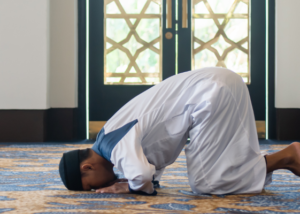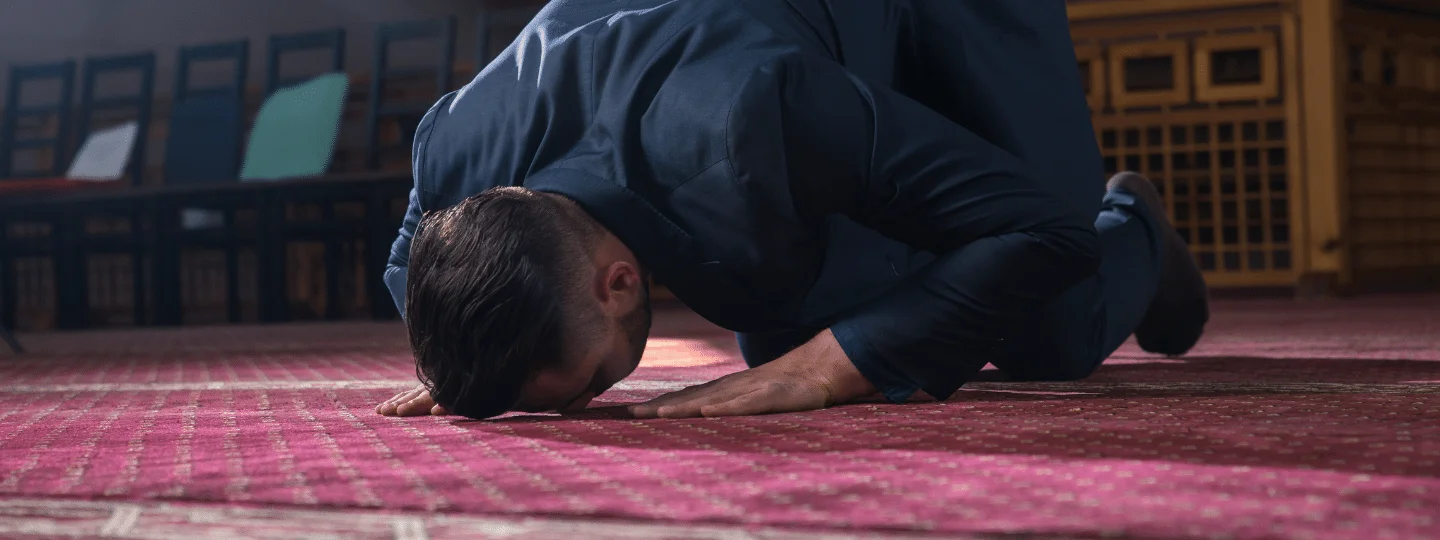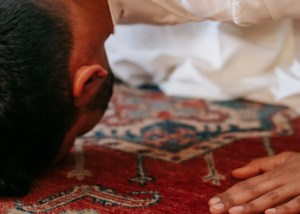Can you pray Witr prayer as three Rakahs with one Salaam at the end?
Quran
Hadith
Islamic Text
Yes, this is the valid method according to the Hanafi Madhab. Other Madhabs differ on this issue, which must be respected. However, the Hanafi Madhab gives preference to the narrations that present Witr prayer as three Rakahs with one Salaam.
عَنْ أُبَيِّ بْنِ كَعْبٍ قَالَ: كَانَ رَسُولُ اللَّهِ صَلَّى اللهُ عَلَيْهِ وَسَلَّمَ يَقْرَأُ فِي الْوِتْرِ بِسَبِّحِ اسْمَ رَبِّكَ الْأَعْلَى، وَفِي الرَّكْعَةِ الثَّانِيَةِ بِقُلْ يَا أَيُّهَا الْكَافِرُونَ، وَفِي الثَّالِثَةِ بِقُلْ هُوَ اللَّهُ أَحَدٌ، وَلَا يُسَلِّمُ إِلَّا فِي آخِرِهِنَّ، وَيَقُولُ ـ يَعْنِي بَعْدَ التَّسْلِيمِ ـ: «سُبْحَانَ الْمَلِكِ الْقُدُّوسِ»، ثَلَاثًا
(Sayidina) Ubay bin Ka’b (May Allah Most High be pleased with him) said, the Messenger of Allah (peace be upon him) used to recite Sabihismi Rabika al-Ala in Witr. In the second Rakah, Qul Ya Ayuhal Kafiroon, and Qul huwAllahu Ahad in the third. He (peace be upon him) would not make Salaam except at the end of them (the three Rakahs). And He (peace be upon him) used to say (after the final Salaam), Subhana al-Malik al-Qudoos, thrice. (Sunan al-Nasai 1701, Sahih according to Imam al-Ayni).
عَنْ عَائِشَةَ، قَالَتْ: «كَانَ رَسُولُ اللَّهِ صَلَّى اللهُ عَلَيْهِ وَسَلَّمَ يُوتِرُ بِثَلَاثٍ لَا يُسَلِّمُ إِلَّا فِي آخِرِهِنَّ» وَهَذَا وِتْرُ أَمِيرِ الْمُؤْمِنِينَ عُمَرَ بْنِ الْخَطَّابِ رَضِيَ اللَّهُ عَنْهُ «وَعَنْهُ أَخَذَهُ أَهْلُ الْمَدِينَةِ»
(Sayidah) Ayesha (May Allah Most High be pleased with her) said, the Messenger of Allah (peace be upon him) used to pray Witr as three Rakahs and he (peace be upon him) would not make Salaam except at the end of them (the three Rakahs). (Imam Hakim said), And this was the Witr of the leader of the believers, Umar ibn al-Khattab (May Allah Most High be pleased with him), and the people of Madinah took it from him. (Mustadrak al-Hakim, 1140)
In the narrations above we find the Holy Prophet (peace be upon him) praying the Witr Salah as three Rakahs with one Salaam. The Hanafi Madhab gives preference to these narrations and therefore requires a person to pray in this manner.
فعندنا الْوتر ثَلَاث رَكْعَات بِتَسْلِيمَة وَاحِدَة فِي الْأَوْقَات كلهَا. (تحفة الفقهاء).
And according to us, the Witr prayer is three Rakahs with one Salaam, at all times. (Tuhfatu al-Fuqaha, Imam Ala al-Deen al-Samarqandi).
Other Madhabs differ on this issue, and they have evidence for their position too. It is important to note that the Imams of the Madhabs all have evidence when they differ with each other. If this had not been the case then the Ummah would not accept them as religious authorities. It is not permitted for any Muslim scholar to differ with another Muslims scholar without evidence to support his position.
Unfortunately, some Muslims have caused confusion regarding scholarly differences. They present issues as black and white, without any consideration for difference of opinion. This contradicts the understanding of the Sahabah. The Sahabah differed over many issues and respected the difference, accepting the possibility of another opinion being valid too. See the link and video below for a more detailed explanation.
And Allah Most High knows best.
– Answered by Shaykh Noorud-deen Rashid (03.11.2021)
See also:
How to respect difference of opinion?
See also (video):






